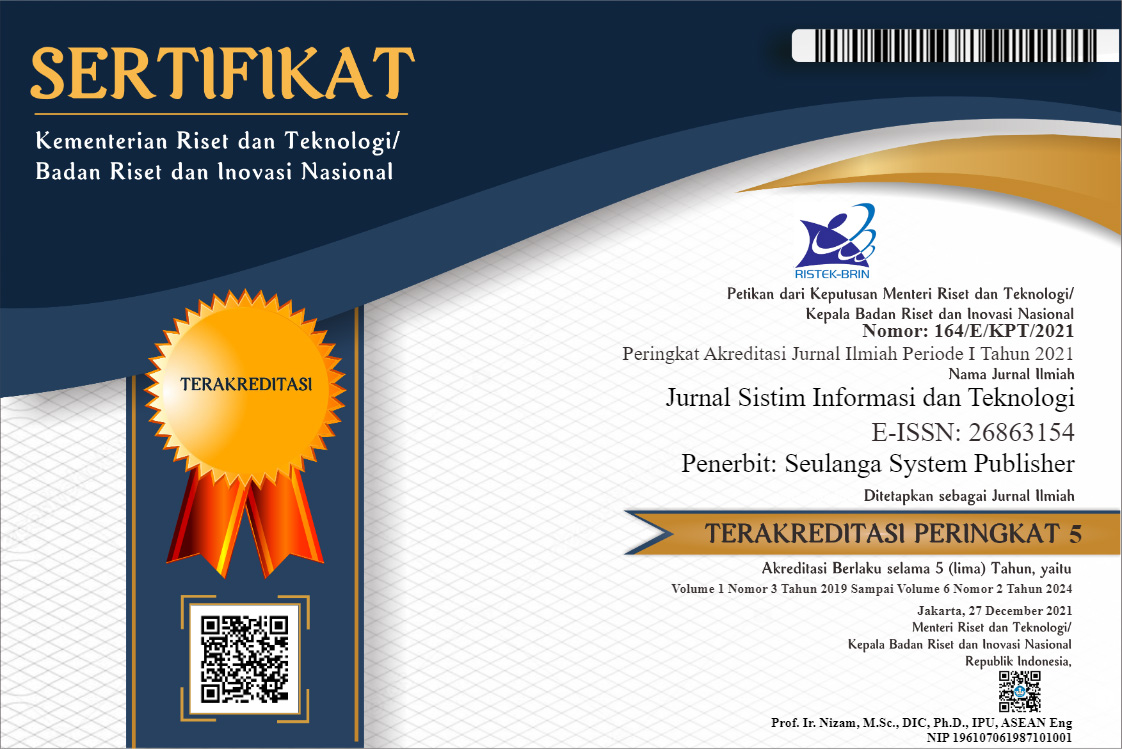Analysis of Determinant Factors Customer Loyalty Towards Brand in The Telecommunication Industry With The Digitalization Paradigm
DOI:
https://doi.org/10.60083/jsisfotek.v6i2.349Keywords:
Digital Context, Strategy, Brand, ManagementAbstract
The goal of this research is to determine whether company parties have implemented engagement strategies in the current digital context. This research uses a qualitative marketing research approach. We used a digital platform for the initial data collection stage. The analysis then continued with the creation of a textual corpus. A deep understanding of consumer engagement with brands can help companies build stronger relationships with consumers, create greater value for brands, and maintain a competitive advantage in the marketplace. By paying attention to emotional, cognitive, and behavioral dimensions, companies can develop more holistic and effective strategies for managing consumer engagement and strengthening their brand positioning. Research results reveal that consumers actively seek knowledge and information to enhance their decision-making about brands and products. Mobile telecoms have well-implemented Customer Brand Engagement strategies, but they also need to have a proactive approach in dialogue with customers to maintain their engagement. This means that in addition to understanding and responding to consumer needs and desires, companies also need to be proactive in communicating with customers to strengthen their relationship and engagement with the brand. According to a careful analysis of the lexical units in cluster one, the majority come from Twitter. Cluster two highlights the comparisons that consumers make regarding the technical characteristics of products and services with those of various competitors. Meanwhile, cluster three shows that consumers are increasingly looking for personal services that can meet their needs. Cluster four warns management about loss phenomena that are specific to certain areas or regions. Finally, Cluster Five allows management to understand that consumers are currently less involved in innovative services such as payments via smartphone.
References
Beach, D. (2005), "From Fieldwork to Theory and Representation in Ethnography", Troman, G., Jeffrey, B. and Walford, G. (Ed.) Methodological Issues and Practices in Ethnography (Studies in Educational Ethnography, Vol. 11), Emerald Group Publishing Limited, Leeds, pp. 1-17. https://doi.org/10.1016/S1529-210X(05)11001-8
Suyoto, Y. T., & Tannady, H. (2022). Ideal self-congruence: Its impacts on customer love and loyalty to luxury brands in Indonesia. International Journal of Professional Business Review: Int. J. Prof. Bus. Rev., 7(6), 18.
Tannady, H., Aryanti, M. N., Julieta, L., Salsabila, H. D., & Octavia, D. (2023). Analysis of Service Quality on Customer Satisfaction at Merchant Mixue Summarecon Digital Center Branch, Tangerang. Open Access Indonesia Journal of Social Sciences, 6(1), 912-916.
Annas, M., Chandra, G., Humairoh, H., & Tannady, H. (2023). How Is The Customer Satisfied With The Expedition Service?. International Journal of Economics, Business and Innovation Research, 2(02), 182-199.
Tannady, H., Aditia, A., Bhadra, B., & Cung, C. (2023). Analysis of Service Quality to Increase Customer Satisfaction of Libro Café. Journal of Applied Business, Taxation and Economics Research, 2(3), 311-318.
Sudirjo, F., Ahmad Yani, D. ., Suroso, A. ., Kadarsih, & Ar Rakhman Awaludin, A. . (2023). Comparative Analysis of Customer Acceptance of Digital Wallet Gopay, Dana and Ovo Using Unified Theory of Acceptance and Use of Technology. Jurnal Sistim Informasi Dan Teknologi, 5(4), 38–43. https://doi.org/10.60083/jsisfotek.v5i4.324
Arifin, M. S. ., Fikri Maulana, M. ., Suroso, A., Suhartono, & Mariam. (2023). The Role of E-Customer Satisfaction as Intervening Variable in Relationship Between E-Service Quality, E-Recovery and E-Customer Loyalty of Indonesian Railroad Access Customers. Jurnal Sistim Informasi Dan Teknologi, 5(3), 6–10. https://doi.org/10.60083/jsisfotek.v5i3.274
Davie-Kessler, J. (2016), "Ethnography as Subject, Ethnography as Object: Experimenting with Research in a College Writing Classroom", New Directions in Educational Ethnography (Studies in Educational Ethnography, Vol. 13), Emerald Group Publishing Limited, Leeds, pp. 193-212. https://doi.org/10.1108/S1529-210X20150000013007
Carroll Bronson (2015), "Practical Ethnography: A Guide to Doing Ethnography in the Private Sector", Journal of Organizational Ethnography, Vol. 4 No. 3, pp. 367-370. https://doi.org/10.1108/JOE-07-2015-0018
Indriastiningsih, E. ., Violin, V. ., Syafri, M. ., Nurbakti, R. ., & Judijanto, L. . (2023). Analysis of The Influence of Customer Satisfaction, Experiental Marketing and E-Service Quality on Loyalty of KAI Commuter Customers. Jurnal Sistim Informasi Dan Teknologi, 5(3), 69–73. https://doi.org/10.60083/jsisfotek.v5i3.305
Sulistyowati, Pahlawansah, H. ., Sumerli A, C. H. ., Octiva, C. S. ., & Muafiqie, H. . (2023). Measurement Analysis of the Level of E-Commerce Adoption Readiness in SMEs Using Technology Readiness Index Method. Jurnal Sistim Informasi Dan Teknologi, 5(2), 193–197. https://doi.org/10.60083/jsisfotek.v5i2.263
Sudirjo, F., Damara Gugat, R. M. ., Budi Utama, A. N. ., Utami, E. Y. ., & Martis, A. . (2024). The Application of User Experience Questionnaire to Evaluate Customer Experience When Using Digital Platform to Purchase Flight Ticket in Two Travel and Ticketing Digital Companies. Jurnal Sistim Informasi Dan Teknologi, 5(4), 57–62. https://doi.org/10.60083/jsisfotek.v5i4.333
Peacock, D. (2017), "Institutional Ethnography, Critical Discourse Analysis, and the Discursive Coordination of Organizational Activity", Reid, J. and Russell, L. (Ed.) Perspectives on and from Institutional Ethnography (Studies in Qualitative Methodology, Vol. 15), Emerald Publishing Limited, Leeds, pp. 91-106. https://doi.org/10.1108/S1042-319220170000015007
Downloads
Published
How to Cite
Issue
Section
License
Copyright (c) 2024 Jurnal Sistim Informasi dan Teknologi

This work is licensed under a Creative Commons Attribution 4.0 International License.









